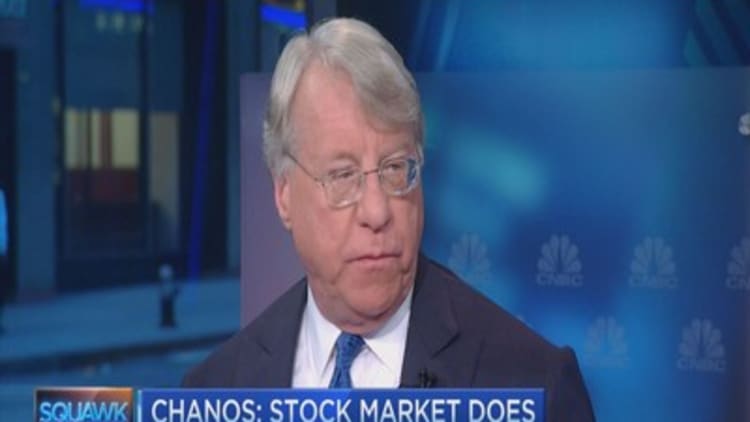Long a key driver of world economic growth, but economists are now starting to mull whether China could lead the world into another recession.
If the global economy slides into a recession of "moderate depth" next year, it will most likely be dragged down by slow growth in major emerging markets -- especially a recession in China, according to Willem Buiter, chief economist at Citigroup.
"We believe that there is a high and rising likelihood of a Chinese, EM (emerging market) and global recession scenario playing out," Buiter, a former member of the Bank of England's interest rate-setting committee, said in a note published late Tuesday.
Speaking on Wednesday to CNBC's Squawk on the Street, had was more blunt: "This is a a classic recession scenario," adding that the Chinese economy has recently experienced excess capacity, excessive leverage in the corporate sector and two booms, bubbles and busts in housing and stock markets.
Fears of a sharp slowdown in China's economy - the second largest in the world after the U.S. – has rattled global markets in recent months.
Exacerbating those concerns, data released on Tuesday showed the country's dollar-denominated exports fell by 5.5 percent in August from a year earlier, while imports tumbled almost 14 percent.
Buiter points out that while a global recession is not yet reflected in Citi's benchmark forecasts for global or Chinese growth in 2016, it is a view that has gained ground within Citi's global economics team.
He said the most likely scenario, is that global real gross domestic product growth (GDP) will decline steadily over the next few years, falling to or below 2 percent around the middle of next year.
But he added that the probability of some kind of recession, moderate or severe, was 55 percent.
According to Buiter, if the world economy slips into a recession, generally identified by two straight quarters where GDP falls, it will be the emerging markets and China, in particular, that would lead the way.
"We consider China to be at a high and rapidly rising risk of a cyclical hard landing," the Citi note said.

"The reasons behind China's downturn and likely recession are familiar from the long history of business cycles everywhere: rising excess capacity in a growing number of sectors, excessive leverage in the private sector and episodes of irrational exuberance in asset markets."
One of the asset markets Citi referred to was the equity market. Having soared some 60 percent between the start of the year and June, China's benchmark Shanghai Composite Index then fell hard and fast.
The index has virtually wiped out all of its gains for the year, closing at 3,243 points on Wednesday.
Earlier this week, China revised down its forecast for economic growth this year to 7.3 percent from 7.4 percent.
The Chinese government set its target GDP growth rate for 2015 at 7 percent and, in July, it reported a 7-percent annualized growth rate. Nevertheless, Buiter added that based on the bank's models, China's economy grew at about 4 percent. "The official data is largely meaningless," he said.
"If China does worse, the U.S. and everybody else does worse. It is mitigated somewhat by weaker commodity prices," he added. "Chinese trade as a share for total world trade is larger than that of the U.S."
Buiter said that should China enter a recession, many emerging markets would probably follow.
"The advanced economies or developed markets (DMs) will not have enough resilience, either spontaneous or policy-driven, to prevent a global slowdown and recession, even though many large DMs will not experience recessions themselves but will merely grow more slowly," he added.



